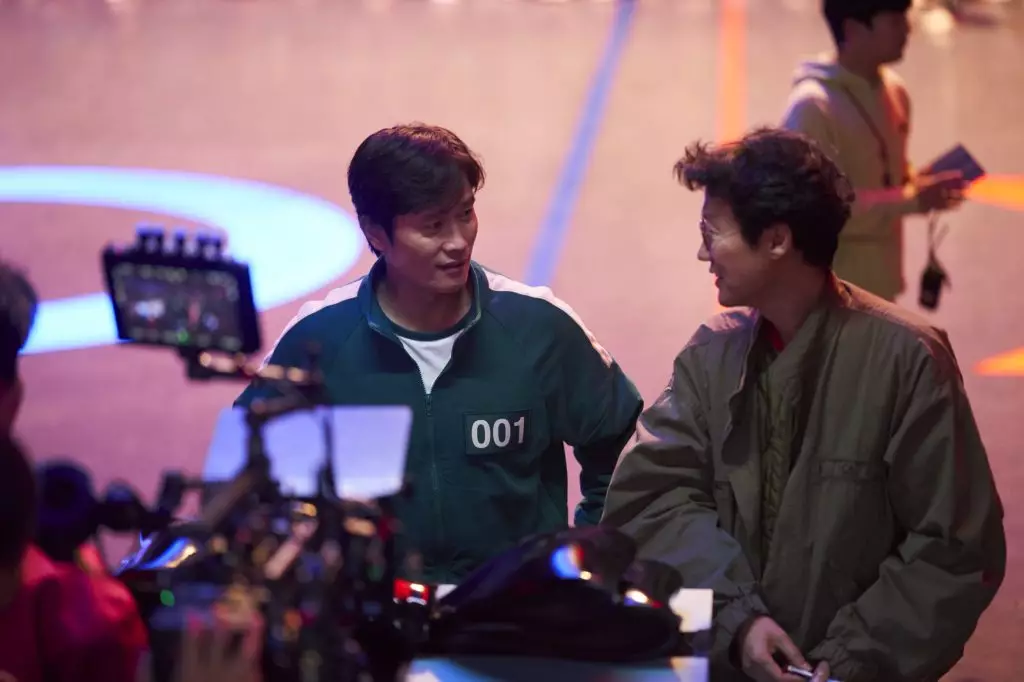The unexpected trajectory of Lee Byung-hun’s character within the hit series *Squid Game* showcases a fascinating evolution for both the actor and the narrative. Initially introduced in Season 1 as the enigmatic Front Man (In-ho), Lee’s role was then expanded significantly for Season 2. This transition not only highlights Lee’s versatility as an actor but also sets the stage for a deeper exploration of themes like loyalty, morality, and sacrifice within the ruthless universe of the game.
In the sequel, Lee Byung-hun sheds the mask of the Front Man to reveal Player 001, placing him directly in the fray of the deadly games. This shift represents a departure from merely overseeing the chaos to participating in it, aligning him with the series’ key legacy character, Gi-hun, played by Lee Jung-jae. This alliance transforms the dynamics of the narrative, leading audiences to question the motives and allegiances of former winners. During interviews, Lee reflected on his initial conversations with Director Hwang Dong-hyuk regarding the direction of the new season, revealing his surprise at the development of his character that he found quite different from his expectations. This insight underscores the director’s creative freedom and willingness to subvert audience assumptions.
As the premiere of Season 2 unfolded in Los Angeles, Lee experienced a pivotal moment in his career, marking his first red carpet event for a Korean project. For an actor who has navigated the complex waters of both Korean cinema and Hollywood, this occasion elicited a profound emotional response. Lee expressed feelings of pride in being part of a creative community showcasing Korean narratives globally. The experience was both nostalgic and monumental, serving as a reminder of his roots while highlighting the ascendance of Korean content in the international arena. His reflections illustrate a broader cultural phenomenon—the increasing recognition and appreciation of Korean art and storytelling on a global scale.
Following its release, *Squid Game* Season 2 asserted itself as a formidable presence in the Netflix rankings, dominating for weeks on end. It amassed a staggering viewership, solidifying its position as one of the platform’s most successful non-English series. This achievement is not solely a product of gripping storytelling but also stands as a testament to the cultural resonance the show has achieved worldwide. Lee Byung-hun’s participation in this project only enhances its credibility and appeal, bringing an established star to the forefront of an already compelling narrative.
In terms of performance, Lee noted that navigating the complexities of embodying three distinct identities—Front Man, In-ho, and Player 001—throughout Season 2 posed a significant challenge. One scene that particularly resonated with him involved the characters of Gi-hun and the Front Man in a team discussion before a rebellion takes form. In this pivotal moment, the fragility of allegiances is laid bare, with Gi-hun’s reluctant acceptance of potential sacrifice suggesting a weakening of his moral stance. Lee’s subtle portrayal of the Front Man’s reaction—a restrained smile—communicates profound shifts in his character’s understanding of loyalty and sacrifice. This nuance speaks to the deeper narrative themes of moral ambiguity that lie at the heart of *Squid Game*.
Looking ahead, Lee Byung-hun’s career appears poised for further growth. With upcoming projects such as Park Chan-wook’s *No Other Choice*, he demonstrates a commitment to pushing boundaries in his artistry. As he transitions between roles and challenges, his journey encapsulates the broader evolution of the global film industry and the increasing importance of authentic storytelling. As Season 2 of *Squid Game* continues to captivate audiences worldwide, Lee Byung-hun’s journey reflects not only his personal growth as an actor but also the cultural significance of the narratives he helps to shape. The confluence of his experiences in Hollywood and his reinvigoration in Korean cinema represents a new chapter not only for him but for the industry at large.

